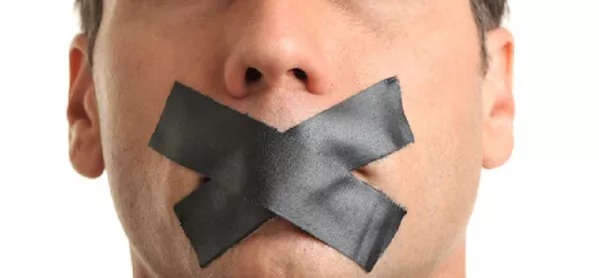What should be the boundaries of free speech and intellectual enquiry in the sixth-form classroom today? Should there even be a boundary?
I ask these questions because I can’t help noticing a chilling of free speech in the classroom and a reluctance among a growing number of teachers prepared to tackle contentious topics with their students lest they incur a complaint from a pupil or parent.
At this year’s National Union of Teachers conference, one speaker declared that ’Freedom of speech is ending where conversations about Islam begin’. However, it is not just debate around the usual suspects like Islam, religion, terrorism, rape, consent and transgender that are being avoided. Increasingly even critiques of multiculturalism, recycling, climate change and society’s obsession with obesity are beyond bounds.
There are several reasons for the erosion of open debate and enquiry in the classroom. Firstly, and understandably, some young and inexperienced teachers simply lack the confidence to tackle some controversial topics.
Secondly, some of the new brand of headteachers are rather spineless and don’t seem to appreciate that schools should be centres of intellectual curiosity and debate. Dreading the slightest whiff of risk or uncertainty in education, they insist that any hint of controversy be avoided at all cost. Furthermore, in an era of the exam factory and teaching to the test, the mantra seems to be, if it ain’t in the test, why go near it?
Disposition to take offence
The biggest problem we face today, though, is the increasing disposition of some teenagers to take offence in the classroom at all manner of opinions and ideas. The now ubiquitous phrase, ‘I find that offensive’, is becoming an anthem for far too many.
The increasing propensity to take offence has until recently been primarily confined to university, but has now arrived in English schools with a bang. I have personally had Year 12 students telling me they were offended for no other reason than I explained why millions of Americans have a liking for Donald Trump. When I suggested to another class that some Remain voters needed to get over their hurt about the Brexit referendum result, two of the class informed me that my comments were causing emotional distress and to “please don’t go there again”.
In another instance, a fellow teacher recounted to me how a student found her comments “offensive” when she tried to explain during a history lesson why some people claim the death figures from the Holocaust were exaggerated. My colleague wasn’t herself questioning the totals, but simply informing the class that a minority of people do. Nonetheless, this was deemed “too hurtful and should not be said”, according to the aggrieved pupil.
In another instance, a teacher was warned by his line manager about his “conduct” during a sociology lesson for outlining some of the criticisms (and strengths) of the Black Lives Matter movement. He was told that it caused psychological hurt for one pupil and was ‘advised’ never to repeat such criticisms in a lesson again.
The importance of feeling uncomfortable
It seems to me that there is a serious lack of grit and resilience in many teenagers when it comes to confronting ideas they don’t like or find uncomfortable. Years of pandering to their self-esteem, feelings and ever-widening definitions of bullying have in my view contributed to a young generation that is too thin-skinned and mollycoddled. We do them no good by indulging their competitive offence-claiming because the ultimate loser will be the students.
As more and more schools steer clear of exploring important areas of enquiry, on the basis that they don’t want teenagers to feel uncomfortable, we need to defend the importance of provocative and thought-provoking discussion in the classroom.
Feeling uncomfortable is an important part of a good, liberal, rounded education. That is exactly what it feels like when one is having their assumptions challenged. The job of a teacher is not to reinforce a young person’s identity or boost their self-esteem, but rather to stretch them and introduce them to a world of new ideas that will move them beyond where they are at.
Sometimes, what is said can take a pupil out of their comfort zone - isn’t that what a good education should be all about? Today, in a growing number of schools, free speech in the classroom is under threat. It is time teachers grasped this fact in and began to defend it. Next time a young person tells you “that’s offensive”, tell them that in the interest of a liberal education you defend the right to be offensive. They might not say it now, but I bet they will thank you for it at a later date.
Kevin Rooney is the head of social science at Queens’ School, Bushey
Want to keep up with the latest education news and opinion? Follow TES on Twitter and like TES on Facebook




